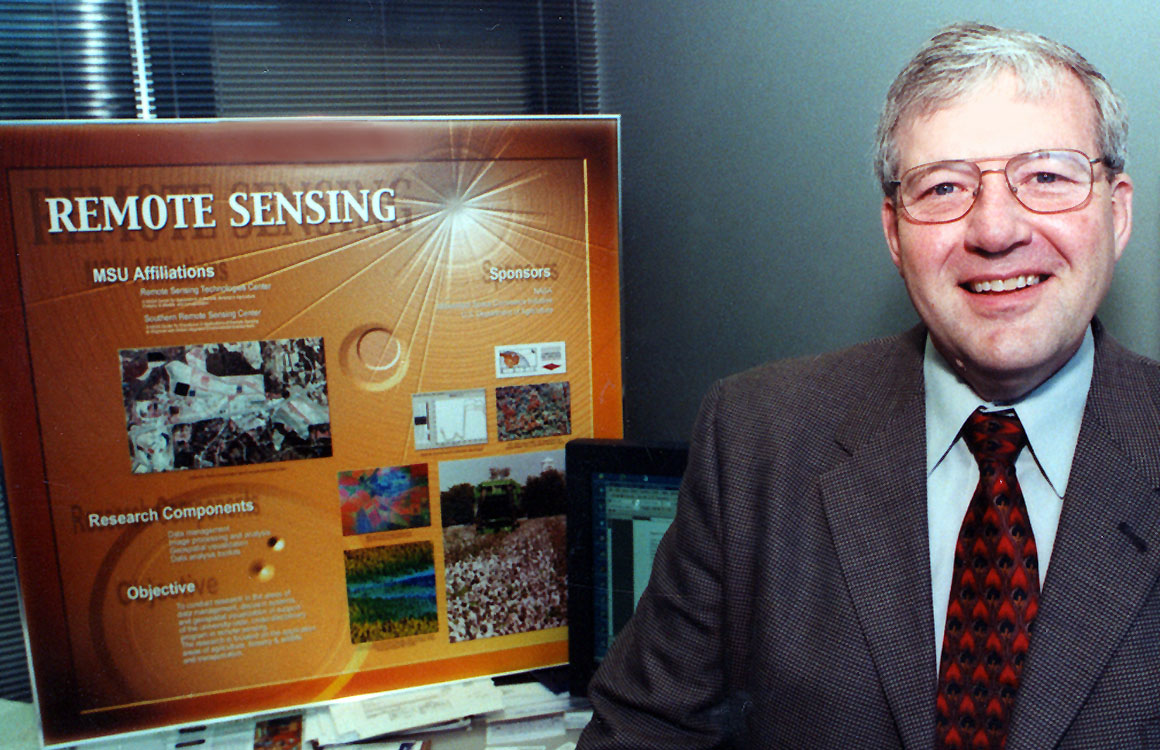Contact: Bob Ratliff

Roger King
Roger King teaches and searches for ways to apply remote sensing technology to areas ranging from transportation systems to agriculture.
For the next year, however, the Mississippi State professor of electrical and computer engineering also will lend his extensive expertise to the National Aeronautics and Space Administration.
King, director of the university's Computational Geospatial Technologies Center and chief engineer for the Remote Sensing Technologies Center, will serve as NASA's chief technologist for earth science applications.
"NASA was looking for someone with a broad overview of remote sensing to help focus its activities in areas that are important to the nation's economy and security," King said. "Finding practical applications for the emerging technology are something we've been doing at Mississippi State for several years."
Remote sensing uses satellites or airplanes to collect images that reveal features not apparent to the naked eye. Uses for the data from the images include forest mapping, pollution detection, crop analysis, and transportation corridor planning.
MSU interim president Charles Lee said King's assignment will be beneficial to both the university and NASA.
"Dr. King's selection for this important role recognizes MSU's remote sensing expertise," Lee said. "His interaction with NASA personnel and others during the next year also will help build important relationships for the state and the university."
In his role with the space agency, King will visit NASA facilities nationwide to collect information and make recommendations for applying remote sensing technology to a variety of national needs, including forecasting short-term energy needs, aviation safety and natural disaster preparedness.
"The work we do at MSU increases our knowledge of the Earth and its processes in disciplines ranging from computer science and civil engineering to urban planning," King said. "The variety and success of the university's remote sensing work is something NASA would like to use in its efforts to build public, private and academic partnerships to apply the technology to national needs."
Though King will reside temporarily in Washington as he works at NASA's Washington, D.C., headquarters, he will continue some of his MSU duties, including teaching a course on remote sensing.
"Part of the time I will be able to teach the course in person," he said. "When I cannot be on campus, I'll use the university's distance-learning facilities to teach the course from Washington, which will provide opportunities to include material on what NASA is doing in remote sensing."